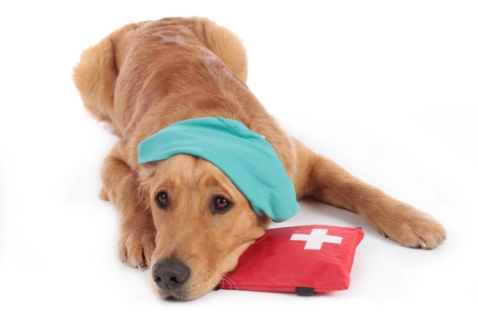Why should I vaccinate my dog / cat?
Vaccination protects your pet against highly infectious and sometimes fatal diseases. It is particularly important for young animals not only because their immune systems are not fully developed but also so they can be socialised to new experiences and other animals safely.
How vaccines work
Young animals receive most of their immunity from their mother’s milk. Once weaned, they stop receiving this immunity and need to develop their own. A vaccination stimulates their bodies to produce immunity against these diseases although it still takes a little while after vaccination for young animals to produce the antibodies on their own.
It is important to keep young puppies and kittens in a clean environment after their vaccination as they can still fall sick. We see many pet shop animals that become ill because they are kept in poor conditions and have not been able to build up their immune systems, or were born to unvaccinated mothers.
We can all play our part in keeping disease at bay. The best way is to ensure that your puppy or kitten was born to a vaccinated mother, is fully weaned for several weeks and that it was born and raised in a clean, stress-free environment.
In Hong Kong, it is against the law to sell unvaccinated, unweaned animals.
Essential vaccinations
Rabies vaccination
Dogs above the age of 12 weeks can be vaccinated against rabies but, by law, dogs older than five months MUST be vaccinated against the disease and be licensed with the Agriculture, Fisheries and Conservation Department (AFCD). Cats can also be vaccinated against rabies.
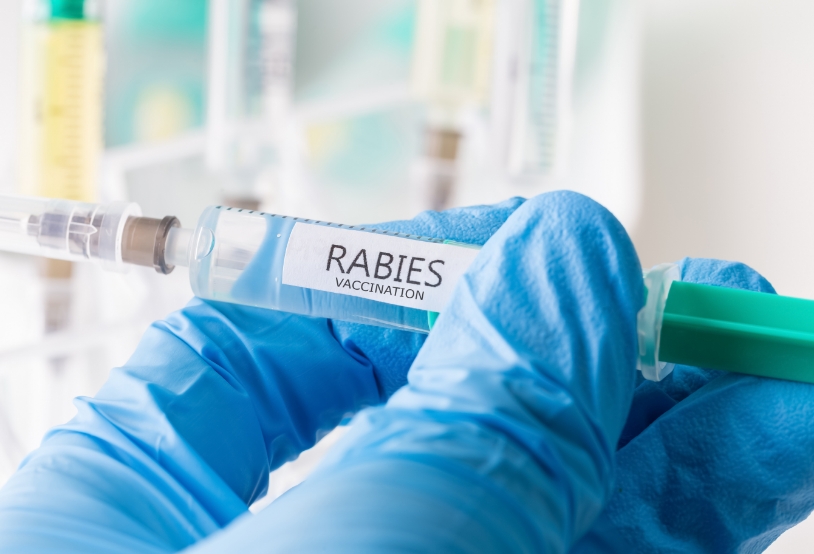
DHPPiL vaccination
This vaccination protects dogs against a range of diseases including distemper, Leptospirosis, Parvovirus, Parainfluenza and Hepatitis. Of these the first three are particularly serious for dogs and it’s worth knowing that canine distemper and Parvovirus are particularly common among pet shop puppies.
The Leptospirosis vaccination does not provide complete protection against the disease; please speak to your vet for further information.
FVRCP vaccination
This is a combination vaccine to combat Feline Viral Rhinotracheitis, Calicivirus and Panleukopenia. These are highly contagious, often fatal diseases and “cat flu” (a commonly-used term for either Feline Viral Rhinotracheitis or Calicivirus) kills many kittens each year.
Recommended schedule for vaccinations:
| AGE | DOGS | CATS |
|---|---|---|
| 8-10 WEEKS | First DHPPiL vaccination* | First FVRCP vaccination* |
| 12 WEEKS | Second DHPPiL vaccination + rabies vaccination | Second FVRCP vaccination + rabies vaccination (optional) |
| 16 WEEKS | Third DHPPiL vaccination | Third FVRCP vaccination |
| ANNUALLY | DHPPiL booster | FVRCP booster |
* it is possible to vaccinate earlier, particularly in high risk cases; please consult your vet.
Common dog and cat diseases
Rabies is caused by a virus which can infect any type of mammal. Fortunately, rabies is rare and the last reported case in Hong Kong was more than 20 years ago but we need to maintain a high percentage of vaccinated animals to make sure our city stays rabies-free.
Rabies can be transmitted from animals to humans through close contact with infected saliva via bites or scratches.
The disease has a long incubation period of between one and three months but symptoms can also appear in less than a week or as long as a year. The initial symptoms are fever and often pain or an unexplained tingling, pricking or burning sensation at the wound site.
Once symptoms appear, rabies is nearly always fatal.
Canine distemper is a very common disease among dogs in Hong Kong. It can lead to severe respiratory and neurological symptoms from which many dogs do not recover.
The virus is spread by bodily secretions particularly from the respiratory tract. Distemper is commonly found in puppies from unvaccinated mothers and puppies aged 2-6 months are especially vulnerable with a mortality rate as high as 80%.
The most common symptoms are sneezing, coughing, vomiting and diarrhoea. The initial respiratory signs can be similar to that caused by a less virulent disease called kennel cough. Dogs suffering from distemper can also develop neurological problems such as twitching or even seizures. These issues can occur even after the dog appears to have recovered, sometimes years later.
For more details, download our information sheet.
If your pet is suffering from any of the symptoms described above, please consult your veterinary surgeon immediately.
This is a very common canine infection in Hong Kong although severity and survival rates vary significantly. Dogs which do survive can often suffer long-term consequences such as chronic diarrhoea and heart disease. Puppies less than six months old are particularly susceptible.
Infection occurs through contact with contaminated faeces which is why it is a common problem in pet shops.
Key symptoms of the disease include a sudden onset of bloody diarrhoea and/or vomiting, decreased appetite, lethargy and fever. Younger dogs can sometimes collapse without warning and may even die suddenly because of the heart disease induced by Parvovirus.
For more details, download our information sheet.
If your pet is suffering from any of the symptoms described above, please consult your veterinary surgeon immediately.
Caused by different types of Leptospira bacteria, this disease is zoonotic (it can be transmitted from animals to humans) and can potentially lead to multiple organ damage.
The disease is primarily carried by rats. Dogs can pick it up either directly from contact with contaminated urine or indirectly from contact with contaminated water, for example drinking or swimming in waters and streams inhabited by infected rats.
Dogs that regularly visit country parks may be at increased risk if they drink from, or swim in, stagnant pools of water.
The symptoms range from the mild (e.g. lethargy and depression) to the severe (abdominal pain, jaundice, liver and kidney failure, and even death).
For more details, download our information sheet.
If your pet is suffering from any of the symptoms described above, please consult your veterinary surgeon immediately.
This is a commonly used term for Feline Viral Rhinotracheitis or Feline Calicivrus infection which affect the upper respiratory tract of cats. It is highly contagious, can cause serious illness and is, in some cases, fatal particularly to young kittens born to unvaccinated mothers, geriatric cats and cats whose immune systems are compromised. The death rate in young kittens can be over 50%.
The symptoms include a sudden sneezing “attack,” blocked nose, runny eyes, blisters or ulcers on the tongue and fever. In some instances, the cat or kitten may also stop eating due to their symptoms, for example a blocked nose will prevent kittens from smelling food, ulcers on the tongue may make eating difficult or painful.
For more details, download our information sheet.
If your pet is suffering from any of the symptoms described above, please consult your veterinary surgeon immediately.
A highly contagious disease amongst cats with a high mortality rate, the Feline Panleukopaenia virus persists for a long time and can remain on the shoes and clothes of people who handle infected animals.
It is spread through body fluids and faeces of an infected animal or any other material that an infected cat has come into contact with such as bedding or food bowls. It can also be spread by fleas.
The virus attacks the gastrointestinal system resulting in large amounts of usually bloody diarrhoea, severe dehydration, loss of appetite, anaemia.
If your pet is suffering from any of the symptoms described above, please consult your veterinary surgeon immediately.
Preventative Pet Health
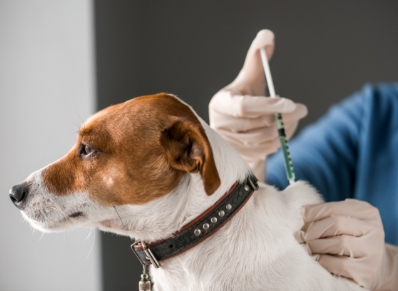
Vaccination
Vaccination protects your pet against highly infectious and sometimes fatal diseases. It is particularly important for young animals not only because their immune systems are not fully developed but also so they can be socialised to ...
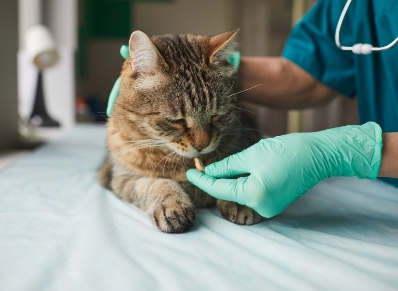
Deworming
Parasitic worms are as common as fleas to your pet, especially in puppies and kittens. From one centimetre hookworms to metre-long flat tapeworms, they can also be transmitted to people in some instances ...
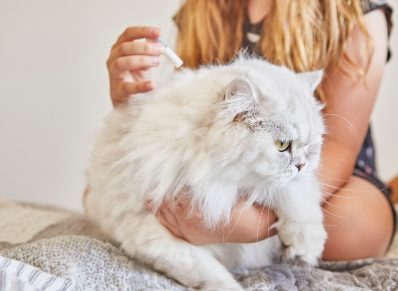
Flea and tick control
Fleas and ticks are very common in the warm, humid climate of Hong Kong. They can cause a variety of conditions from skin disease and allergies to severe anaemias. Control of these pests is therefore important for the welfare of your ...
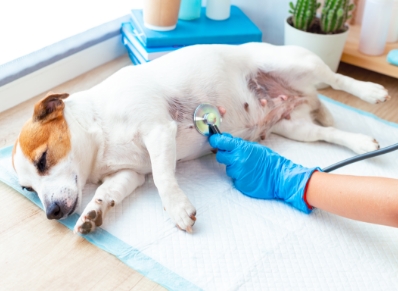
Heartworm prevention
Heartworm is a parasitic roundworm carried by mosquitoes. It can infect dogs, cats and other animals, though rarely humans, and with our warm, humid climate is a significant threat to animals in Hong Kong ...
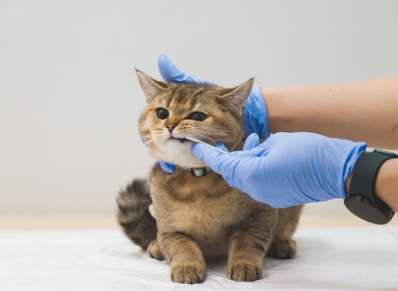
Dental care
Dental disease is one of the most common problems in domestic pets with symptoms including bad breath, swollen gums, loose teeth, drooling and pain when eating. Here are a few things we can do to help animals maintain oral hygiene ...
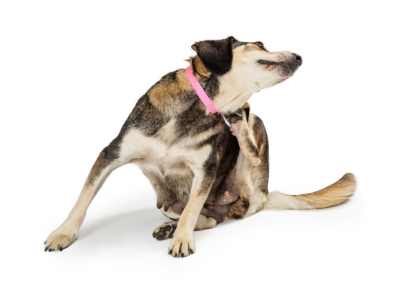
Skin disease
Skin disease affects thousands of dogs and cats every year, ranging from minor “hot spots” to extremely debilitating long-term skin problems. This is particularly the case in Hong Kong’s hot, humid summers but it can occur at any ...

Obesity control
Obesity is a term for any animal which weighs 15% more than it should. Just as with humans, it is not cute and carries significant health risks. And, again just like humans, obesity is a disease that predisposes your pet to many ...
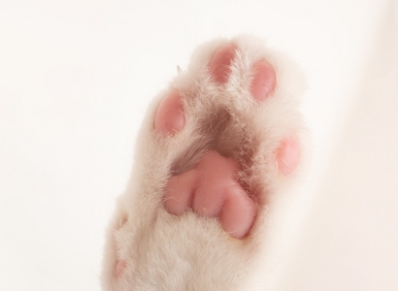
Healthy Paws Lifestyle Campaigns
The SPCA is committed to animal welfare and providing quality veterinary care. In recent years we have run several campaigns to promote a healthy lifestyle not just for pets but people too. After all, a healthy pet means a happy ...

Underwater Treadmill
We are grateful to Mrs Diana Wu, alongside Sasha and Andrew Benadie, for their generous sponsorship that has allowed us to install an underwater rehabilitation treadmill at our Hong Kong centre, the first of its kind in Hong Kong ...











